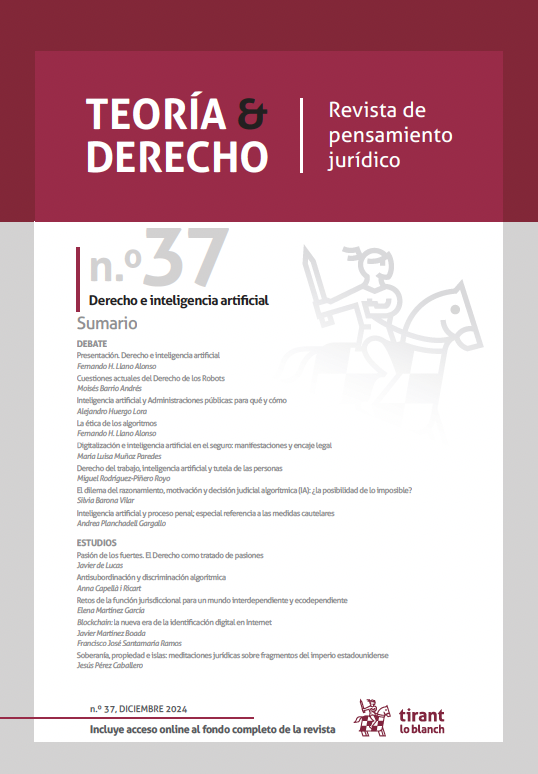The dilemma of reasoning, motivation and algorithmic Judicial Decision-Making (IA): The possibility of the impossible?
DOI:
https://doi.org/10.36151/TD.2024.109Keywords:
Automated justice, algorithmic judicial decision, judicial motivationAbstract
Both automated decision-making models and the emergence of certain artificial decision-making intelligences in the judicial arena raise various questions, including wether the algorithmic judicial decision constitutes a judicial function stricto sensu, wether it is a reasoned decision, wether it is motivated, which is its degree of individualization and wether the the legal framework and the technological conditions required are sufficient to equate the human judicial decision with this new category of algorithmic judicial decision. A debate is open on the maintenance or redefinition of numerous basic procedural principles, such as immediacy, the natural judge, judicial independence, impartiality, accountability, all of which, far fronm being trivial, entail the need for careful reflection to adequately guarantee them. Our paper does not aim to deal with all these issues but, standing on them as the new scenario for justice, to focus on the algorithmic judicial decision-making function itself. Addressing its understanding and content, from the reflection about what to think «as a judge», to reason «as a judge», to motivate the judicial decision «as a judge» actually means and implies, and to what extent it can be extrapolated to a computational model, a complex technological structure or an artificial intelligence.
Downloads
Downloads
Published
How to Cite
Issue
Section
License
Copyright (c) 2024 Teoría & Derecho. Revista de pensamiento jurídico

This work is licensed under a Creative Commons Attribution-NonCommercial-NoDerivatives 4.0 International License.





















